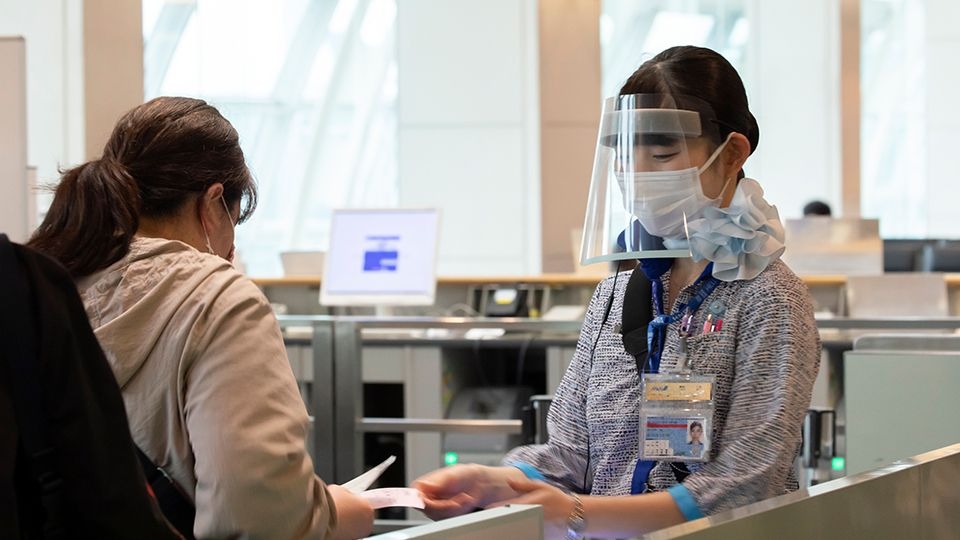Navigating Immigration Policies Post-Pandemic: Key Updates You Need to Know
The COVID-19 pandemic disrupted global immigration on an unprecedented scale. Border closures, halted visa processing, and shifting eligibility rules left many plans on hold. Now, in the post-pandemic era, immigration systems are gradually stabilizing but with significant changes. From new visa pathways to revised health protocols and faster processing for essential workers, here’s a comprehensive guide to the most important updates for anyone planning to move abroad.
Health and Safety Requirements Are Still Relevant
Although many COVID-19 restrictions have been lifted, health and safety measures remain a key part of immigration procedures in several countries.

Key things to keep in mind:
- Vaccination Proof: Proof of full COVID-19 vaccination is still a requirement for long-term visas or permanent residency in many countries. Booster dose records may also be requested.
- Updated Medical Exams: Some immigration categories, especially in countries like Canada, Australia, and the UK, have introduced more detailed medical assessments to screen for infectious diseases and ensure public health safety.
- Quarantine or Testing Rules: Though uncommon, certain countries still enforce quarantine for unvaccinated travelers or require negative COVID-19 tests before entry.
Always verify the latest travel and health entry requirements through your destination country’s official immigration or public health website. For example, Canada frequently updates its travel health rules at Canada.ca.
Read: Overcoming Job Search Burnout – Mental Health Strategies for Long-Term Seekers
Rise of Remote Work and Digital Nomad Visas
Remote work has reshaped global mobility. In response, several countries now offer specialized visas for freelancers, entrepreneurs, and remote employees.

Countries leading the way:
- Canada: While it doesn’t offer a formal digital nomad visa, Canada allows remote workers under visitor or temporary resident programs.
- UK: Offers innovator and startup visas for entrepreneurs, including some tech freelancers.
- Portugal, Estonia, Barbados: These countries offer tailored digital nomad visas, allowing you to live locally while earning from a foreign employer.
What you’ll need to apply:
- Proof of a consistent monthly income (typically between $2,000 to $3,500)
- Contracts or proof of remote employment
- Comprehensive health insurance coverage
- A clean criminal record and valid passport
Each country has its own rules some offer stays up to 12 months with the option to renew. Choose a visa that matches your lifestyle and income source.
Skilled Worker Immigration Pathways Are Expanding
To address labor shortages, many countries are actively simplifying immigration for skilled professionals.
What’s new:
- Canada’s Express Entry Draws: Now prioritize candidates in sectors like healthcare, engineering, tech, and skilled trades through category-based selection.
- UK Skilled Worker Visa: Recently expanded to include more occupations, including care workers, chefs, and educators.
- Australia’s Priority List: Continues to focus on critical roles in construction, IT, and health services.
Typical eligibility includes:
- A valid job offer or sponsorship from an approved employer
- Relevant work experience in an in-demand occupation
- English language proficiency test results (IELTS or equivalent)
Learn more about Canada’s evolving Express Entry system at Canada.ca/express-entry
Read: Immigration Lawyers Reveal the #1 Mistake Costing People Their Visas
Accelerated Processing for Healthcare and Tech Talent
Recognizing their importance during the pandemic, many countries now fast-track immigration applications for workers in essential fields.

Highlighted programs:
- Canada’s Global Talent Stream: Allows expedited processing (as fast as two weeks) for highly skilled IT and STEM workers.
- UK’s Health and Care Worker Visa: Offers quick and prioritized approval for medical professionals, with reduced fees and fewer barriers.
Why it matters:
- You can start your job sooner
- Less bureaucracy means a smoother move
- Employers are more open to hiring internationally
Some of these programs skip the labor market impact assessment (LMIA) or local job advertising steps, making it easier for foreign workers to qualify.
Eased Rules for Family Reunification
Governments are taking steps to make family sponsorship quicker and less restrictive.
Notable improvements:
- Canada: Faster processing for spousal, partner, and dependent child sponsorship applications.
- UK: Greater flexibility in meeting income thresholds for British citizens sponsoring non-UK spouses or partners.
Still required:
- Strong documentation proving your relationship (marriage certificates, shared leases, or photos)
- A signed undertaking to provide financial support for your sponsored family member
Timely and accurate documentation is key. Any delay in responding to requests for additional info can slow down the entire process.
Increased Focus on Financial Stability
In the wake of the economic uncertainty caused by the pandemic, most immigration programs are now placing greater emphasis on applicants’ financial preparedness.
What’s changing:
- Higher Financial Thresholds: Many student and skilled worker programs now require more funds in your bank account to show self-sufficiency.
- Verified Income Sources: Digital nomads and self-employed applicants must demonstrate a steady income stream bank records, tax filings, or client contracts.
Documentation to prepare:
- Official bank statements (past 3 to 6 months)
- Proof of salary or income
- Employment letters or freelance contracts
Avoid screenshots; always submit downloadable, stamped statements or verifiable PDFs from your financial institution.
Read: Latest H-1B Updates: What Immigrants Must Know About 2025 Regulations
Expanded Student Visas and Post-Graduate Work Options
More countries are offering international students a clear path from studying to working, making them more attractive destinations.
Examples include:
- UK Graduate Route: Permits graduates to remain in the UK for 2 to 3 years after finishing their degree, depending on the program.
- Canada’s PGWP: Offers up to 3 years of work eligibility for graduates from eligible Canadian institutions.
What you’ll need:
- A valid student visa and proof of program completion
- Application submitted within the deadline (usually within 180 days of graduation)
- No violations of study permit terms during your academic stay
Check full PGWP eligibility and application steps at IRCC PGWP Guide
Ongoing Refugee and Humanitarian Support Programs
Despite the end of pandemic-related lockdowns, many governments continue to prioritize humanitarian resettlement for those fleeing war, persecution, or displacement.
Examples of active programs:
- Canada: Special pathways for Afghans and Ukrainians under family reunification and emergency resettlement programs.
- UK: Programs such as the Ukraine Family Scheme and Afghan Relocations and Assistance Policy (ARAP) continue to provide entry options and support.
Requirements often include:
- Documented proof of threat or persecution
- Referral through a sponsor, NGO, or United Nations agency
- Biometric and security screening
Seek help from certified immigration consultants or resettlement organizations to ensure accuracy and eligibility. Immigration policies are evolving rapidly in the post-pandemic world, and whether you’re applying as a student, skilled worker, remote employee, or family member, staying informed is crucial.
Always refer to official government websites for immigration updates, avoid third-party agents or unofficial websites that promise shortcuts, and gather your documents early while following submission timelines strictly. Understanding these policy shifts and choosing the visa option that best suits your goals can greatly improve your chances of approval and ensure a smoother transition abroad.
